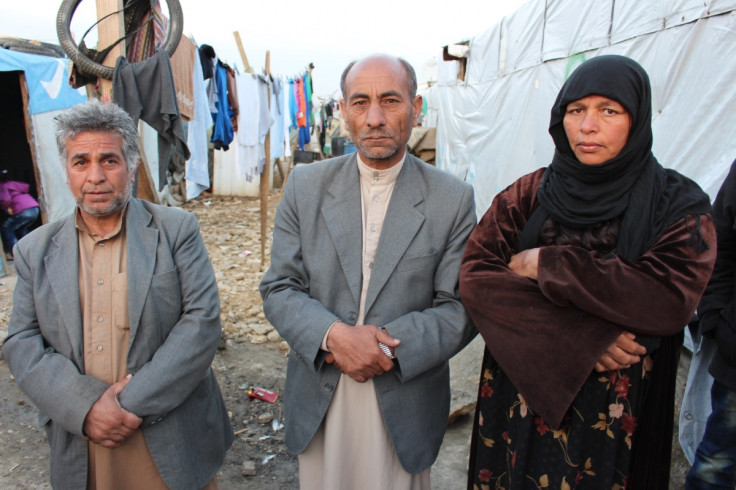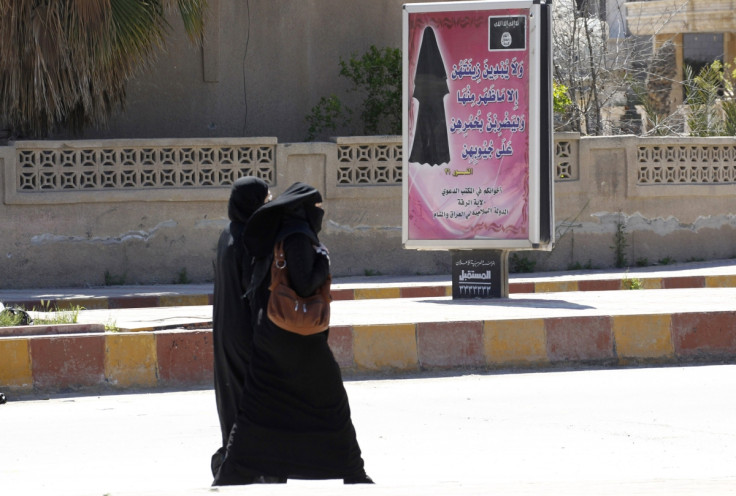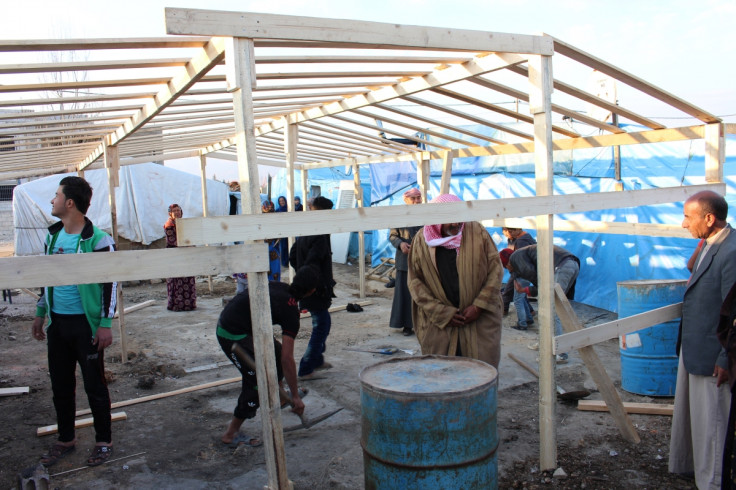Escape from Isis: Raqqa family who fled say 'paradise' city is now 'asphalt'

A family of 12 Syrian refugees have escaped the heartland of Islamic State (Isis) terror in Raqqa to the Bekaa Valley in Lebanon to tell of their life under the oppressive regime and of a city devastated by air strikes.
Ibrahim, 48, and his wife Turkiye, 45, told IBTimes UK they had escaped the de-facto IS (Daesh) capital in Syria 10 days ago (30 January) with their 10 children. They evaded militant checkpoints by stowing away in the back of a cattle truck.
"Daesh would come and hide among us when the regime planes would come and bomb. There is no proper targeting. To kill one Isis person they will kill 30 [others]"
Mohammed
Turkiye said the family had then walked the majority of their 300 kilometre (186 mile) journey from Raqqa to the border with Lebanon under the cover of darkness, before crossing illegally over the Syrian frontier. "We weren't worried about the border we know how to cross, especially from the Syrian side," she said.
Her cousin Mohammed, 49, who had fled from Raqqa earlier for the Lebanese refugee settlement near Barr Elias, explained that their safe passage out of the city had been secured by paying smugglers. "There is a special truck for cattle and they paid 30,000 Syrian pounds (£110, $159) to hide in it. It could fit up to 20 people in it," he said.

Mohammed added that had the family been caught, they would have faced certain death. "They would imprison you and kill you later on because you are just not allowed to leave," he explained.
The family said a combination of the IS' vicious laws and taxes, spiralling costs and constant bombardment by the Assad regime had left them no option but to flee from their home on the banks of the Euphrates. "They would take children like this", said Mohammed, gesturing to his 13-year-old nephew. "To teach them their religion, to brainwash them according to their beliefs...If I'd had a son and had refused to send him, they would whip me," he added.
He explained that men in the city had been made to grow long beards while women were forbidden from standing outside in public close to men, even if they were members of their family. Mohammed added something as petty as smoking would be punished by the cutting off of the index and middle finger.
Turkiye said nothing was left in Raqqa following air strikes on the city. She said the town which had once been what she called a paradise was now reduced to little more than "asphalt".

During the bombing IS had further endangered the inhabitants of the city by hiding amongst the civilians during indiscriminate air strikes by the Syrian government. "Daesh would come and hide among us when the regime planes would come and bomb. There is no proper targeting. To kill one Isis person they will kill 30 [others]," Mohammed explained. "What they would do is they would go and hide with the mothers and the children to use them as a human shield," he said.
"Hundreds would die for the sake of one or two...they were all children and all elderly. They were in their 70s and 80s or younger than 10. [IS] would take over the second floor of a building while civilians hid on the first and third floors."
Foreign fighters from France, Britain, Qatar, Tunisia and from other parts of the world flocked to Raqqa once it was under IS control, and they hid themselves during air raids by wearing the clothes of local people to blend in. While the majority of local people had left Raqqa, the family said violence in Dier Ezzor, Aleppo and Homs was pushing the internally displaced into IS territory.
The price of bread in the city had risen to of 1,200 Syrian pounds when it had previously been 40. IS-imposed taxes on irrigation and fertiliser had further punished the farming family, which owned around 7 kilometres (4.3 miles) of land by the Euphrates.
Callum Paton travelled to the Bekaa Valley in Lebanon courtesy of a non-governmental organisation.
More about Isis
© Copyright IBTimes 2025. All rights reserved.






















